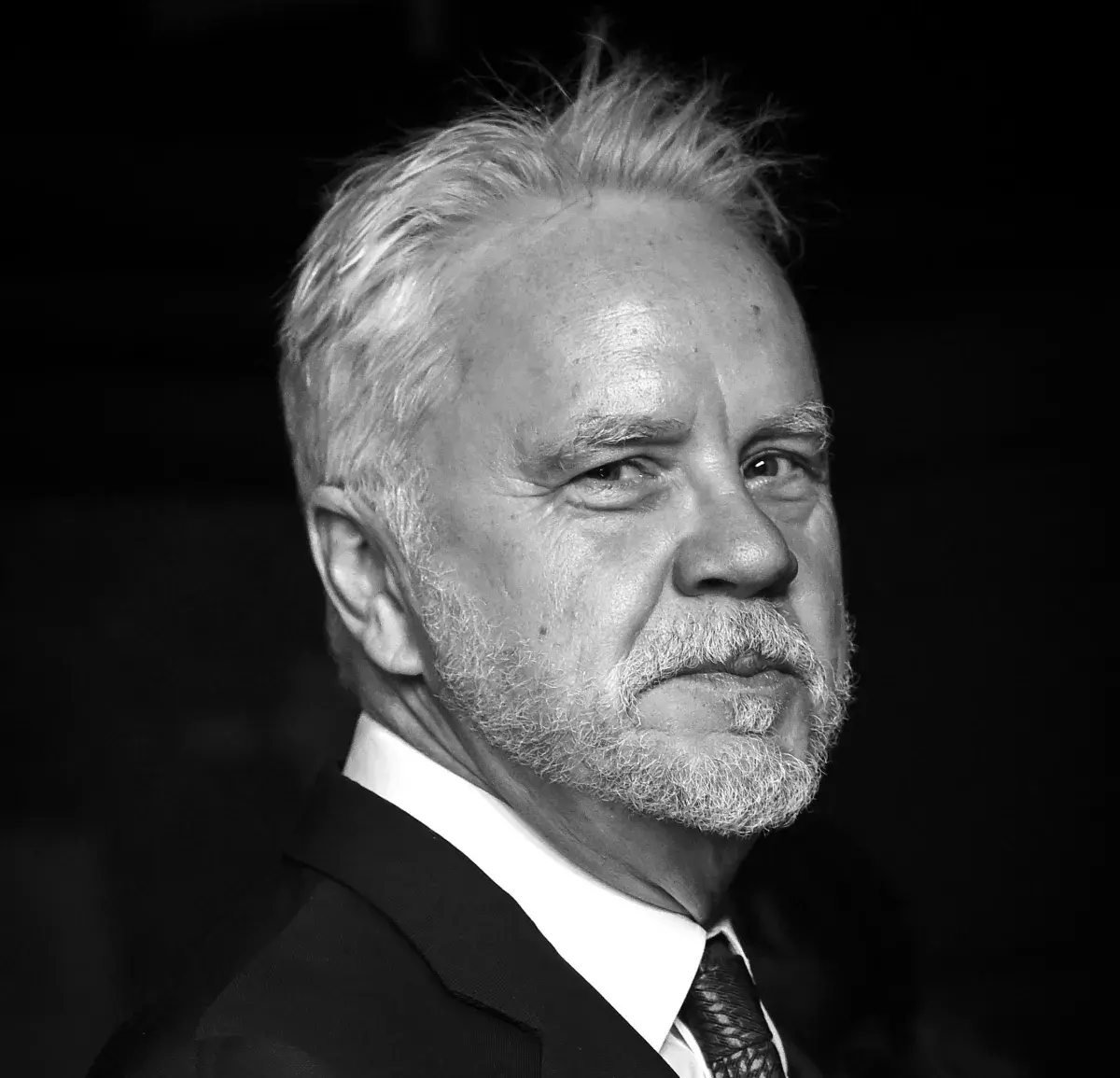Copyright Newsweek

Say the name Tim Robbins, and what comes to mind is likely his performance as convicted murderer Andy Dufresne in The Shawshank Redemption or his Oscar-winning turn as Dave in the murder mystery Mystic River. In many respects it’s fitting that two of his most memorable roles involve men in legal peril, because outside of Hollywood, Robbins has committed his life’s work to bringing the arts to the less fortunate—and particularly the incarcerated—with his theater group The Actors’ Gang. “It’s central to who I am and why I feel I’ve been able to survive in an industry that’s pretty brutal,” Robbins told Newsweek. “I have a consistency that has fed my heart and soul, for [about] the last 44 years. It is where I can continue to grow as a writer, as an actor, as a director and as a person. The thing I love about theater, and the reason I continue to do it, is because it is a medium that will never be locked, it will always be amorphous and changing.” The group’s official mission is to “restore the ancient sense of the stage as a shared sacred space, to introduce theater to children and help them find their own creative voices, to bring the freedom of self-expression to the incarcerated.” In many respects, the key to understanding the roles Robbins is best known for lies with much of the work he’s done with the acting group, where he serves as artistic director. By bringing theater to people who often can’t access it, Robbins’ life mission is to show how theater can be a tool to help people become more humane. Forging an Artistic Home Founded in 1981, The Actors’ Gang was started by Robbins and seven of his fellow students at the University of California, Los Angeles. Very much rooted in experimental theater, the group originally performed wherever they could: the streets of Hollywood, midnight shows, art galleries. Over the years, it has grown into a touring group in addition to their Culver City, California, location, where programs are led and planned for schools, prisons and reentry programs. Early on for Robbins, the whole point of doing theater was to be “free.” “I wanted to be free of all the nonsense and the loyalty oaths that people take in various professions.” That pursuit of artistic freedom is what has sustained Robbins while navigating Hollywood, which he referred to as “feckless” and “neutered.” And commitment to the cause can clearly be felt by other participants, especially since many of the founding members are still actively involved, both as performers and teachers. This is due in large part to how the group works. “[It’s] the soul of what happens when you have 50 actors going through a training, all together...with the idea that it’s OK to push these boundaries and fail because it’s safe here. This is not a competitive, cutthroat environment that so many theater companies can become.” That “safe space” they cultivated in their workshops, free from “cutthroat” competition, proved to be more than just an artistic tool; it became the key to their most important social outreach: The Prison Project. Theater as a Tool for Liberation “We realized ‘oh my God,’ after the pilot program. ‘It works, this thing works,’” Robbins says of the programs The Actors’ Gang conducts in prisons. “This is actually helping people not reoffend. That’s helping our community.” The goal for the program, launched in 2006 and primarily based in California, is to help prisoners find alternate means of communicating and conflict resolution during eight- to 10-week workshops in prisons across the state. “We have like a 10 percent recidivism rate compared to what, at one point, was 60 percent. We’re giving people the tools to exit prison with more access to ways of being that will not wind them back up in jail.” The Actors’ Gang reports that of the 25 prisoners in their inaugural program—18 of whom had life sentences and were found suitable for release by the prison board—23 are now home. Furthermore, they have a 77 percent employment rate for participants in their reentry programs. Their success at reentry, as part of The Actors’ Gang Reentry Project for men, has led to their partnership with the Walden House – HealthRIGHT 360 in Los Angeles, providing continued support and resources to the formerly incarcerated. Part of how The Actors’ Gang achieves this success is through varied experimental theater techniques, including commedia dell’arte, an ancient form of performance art that teaches its subjects about archetypical characters. “We take them to a [metaphorical] funeral. We ask that you go up to the grave and say a prayer. And then the facilitator says, ‘Now look at each other.’ The connection that’s made in that moment is deep, human and true. And it’s a shared emotion. At that moment, you have people from rival gangs making eye contact with each other in a shared emotion of loss and sorrow. That humanizes that person. And from that point forward, all your tribal affiliations go away and the shared humanity is what is important and deep and meaningful.” Robbins says that he’s seen the results, having heard stories from inmates himself. In one instance, an inmate told him about a conflict where they had to pretend to fight in order to save face among other inmates. “They said, ‘We rolled around the ground...like we were hitting each other, but we were taking care of each other.’ They had just delight in their eyes that they were able to pull off this con and not hurt each other. They had a shared humanity they had discovered in this class together.” This realization isn’t just having an impact on the prisoners, it’s also inspiring Robbins to put that sentiment and, frankly, joy back into his productions. “How can we ever remind people of their shared humanity if we don’t include joy as being one of essential markers of humanity?” And that is evident in one the group’s latest productions, Topsy Turvy, a musical Greek vaudeville play Robbins wrote, composed and directed. Restoring Humanity From Chaos When theaters closed amid the COVID-19 pandemic, Robbins largely viewed it as a “betrayal of audience.” “That’s one of the reasons I wrote the players [in the show] because I had this thought: Well, what would Dionysus think about this?” referring to the Greek god of theater. “I just felt it was such an offensive betrayal of the sacred space.” This became the basis for Topsy Turvy. Over the course of the show, a Greek chorus is forced to isolate from each other because of an infectious illness. Over the course of their isolation, chaos ensues, all while they try to restore their humanity. It’s no coincidence that the themes of Topsy Turvy mirror so much of The Actors’ Gang’s work in prisons. The path to restoring humanity from chaos, finding joy and forgiveness and rejecting divisive anger are central to so much of what they do. “I think it’s summed up in that last scene with Chaos, who says, ‘It’s your choice, you can get rid of chaos. It’s all in your hands. You just have to bury the sins of others and your own sins. Then let them go. It’s your choice. Release the beast or take a step back.’ “If you take a step back and just consider where this is all going, headed straight into conflict, that’s your choice. You also have the choice to forgive.” The Never-Ending Act There’s a quote by Robbins’ Dufresne in The Shawshank Redemption that illustrates so much of our conversation. “I guess it comes down to a simple choice, really,” Dufresne says to Red, played by Morgan Freeman. “Get busy living, or get busy dying.” Whether it’s through their work in prisons or in schools, The Actors’ Gang is in the business of using an active pursuit of storytelling to inject life into situations that can oftentimes feel hopeless. “This is the potential that theater has. There is so much that unifies us across political lines. That shared humanity, that common goal for a more healthy and decent life. If we could find those, instead of playing into the divisions that the leaders of both parties want us to be playing into, I think then we can transcend the politics of it all and find the humanity that unites us.” While Hollywood may have made him a star, it is this 44-year-long commitment to a “sacred space” and the humanity it holds that has defined his life’s work. For Tim Robbins, that simple choice, “getting busy living,” as Dufresne said, is not just a personal one. It’s a shared, sacred act.



